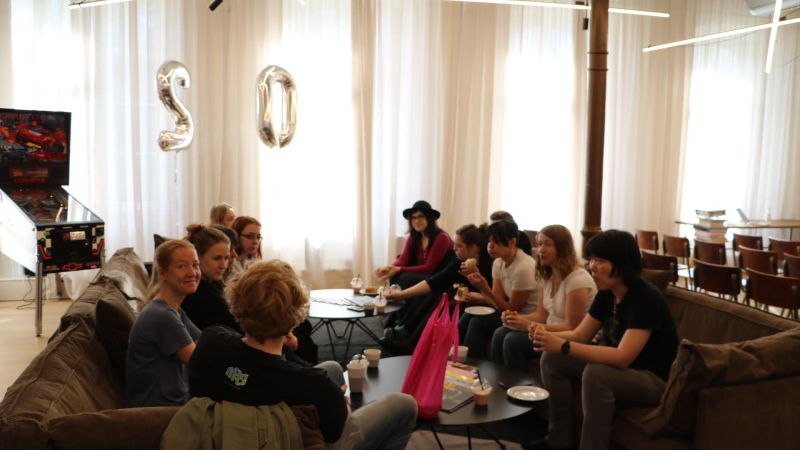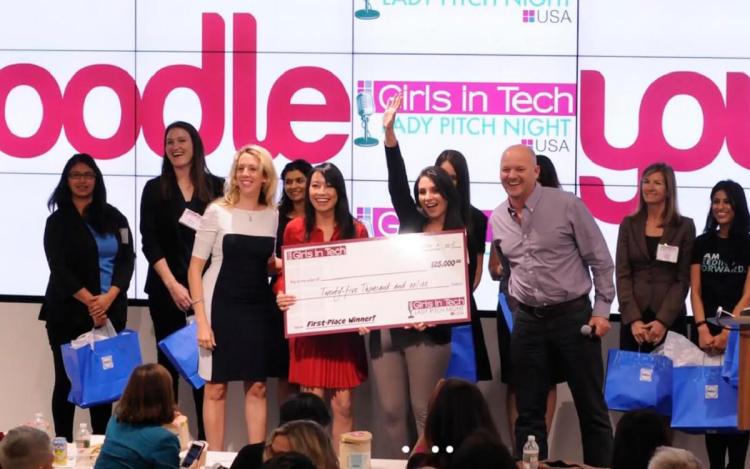Men dominate the video game industry, as they have for most of its history. But perhaps as a result of the perpetual spotlight that has been shone on the issue of gender equality in the games industry, statistics show the percentage of females in development roles in the industry is, in fact, rising slowly. According to the IGDA’s 2014, 2015 and 2016 Developer Satisfaction Surveys, game developers are still generally still white males, most of whom without any children or elder care responsibilities. However, the percentage of women in the gaming workforce has more than doubled over the past 12 years, rising from 11.5 percent in 2005 to approximately 25 percent in 2015. We can see this number continuing to grow, albeit slowly.
While this is a positive direction to be moving in, other studies, such as a McKinsey study from 2016 have shown that women held 37 percent of entry-level roles in tech, not senior positions. With underrepresentation throughout each stage of the pipeline, it’s not surprising to find that 38 percent of women in technology sectors feel that their gender will make future advancement difficult.
Let’s look at the core problem here. Gender diversity in the game industry is still a hot topic, and this is somewhat due to the relatively smaller pool of high quality female talent. This is a problem that is being targeted by companies participating in programs to encourage more young women to enter the tech and/or gaming workforce. Based on research, the way companies set up role descriptions is partly why women sometimes do not even apply to roles for which they are qualified. If they feel they do not meet the criteria they are less likely to apply for a position whereas men will apply anyway. Setting up role descriptions as well as interviewing women for a role with this in mind could help increase the number of female applicants.
Secondly, the workplace itself needs to feel more fair and inclusive by promoting equal rights among men and women regarding salary, position and promotion opportunity, removing any discrimination based on sex stereotypes, pregnancy and parenting. Lastly, companies must be educated on how to retain women in these roles. For instance, companies should provide employees with formal mentoring programs, where women can connect with senior female employees, who can help go through difficult situations, give advice on getting a promotion or provide more information on other opportunities out there. Establishing an anti-bullying workplace fueled by inclusion will lead to a more innovative and productive team, thus creating and cultivating an agile, multicultural environment.
June 5th: The AI Audit in NYC
Join us next week in NYC to engage with top executive leaders, delving into strategies for auditing AI models to ensure fairness, optimal performance, and ethical compliance across diverse organizations. Secure your attendance for this exclusive invite-only event.

Above: Jenny Nordenborg and MAG Interactive’s Women In Games (WIGJ) initiative.
As a company, we at MAG Interactive are still far from meeting our goals of increasing gender diversity but have made leaps and bounds toward this in recent years, including collaborating with Swedish events like SheTech and Introduce a Girl to Engineering (IGE) in order to attract more women into STEM (science, tech, engineering, math) educational programs. Beyond the games industry, we must inspire young women to choose career paths in areas previously thought, albeit incorrectly, to be more “suitable” for men. More women in the technology sector will lead to more software design including solutions that work for a wider customer base, better and more creative code solutions, a more inclusive society overall, slow destruction of the so-called “macho” culture, a bigger pool of highly qualified candidates and in general more tech companies.
This is not just about promoting equal rights, it’s about empowering girls and women to pursue careers in these fields as equals, not as women. Tech, science, engineering and game development are fascinating fields to work in, and with more diversity the probability of faster progress and innovation increases.
Returning specifically to the issue of gender equality in game development, the aggression towards women, such as Gamergate, is one of the reasons women are reluctant to enter the industry – they fear opposition and discrimination. The struggles of female game developers in the industry is a known issue thanks to various actions taken by organizations to improve awareness and, thus, encourage change.
Returning specifically to the issue of gender equality in game development, the aggression towards women, such as Gamergate, is one of the reasons women are reluctant to enter the industry – they fear opposition and discrimination. The struggles of female game developers in the industry is a known issue thanks to various actions taken by organizations to improve awareness and, thus, encourage change.
These conversations have to start in our own companies, as well. At MAG Interactive have an open communication about gender equality, career path for women and available training in order to make sure women feel involved within the company. I personally feel liberated that with the support from my company I can not only take part in women-targeted events but also help more women join this amazing industry. For the second time this year, in collaboration with WIGJ, we have hosted a gathering called Women in Games (WIG), where over 80 women have participated in discussions about various topics ranging from recruiting and retaining women in the industry to methods that solve hostile work environment problems. We aim to motivate women as well as development studios and publishers to take action by analyzing problems and searching for better practices. Spreading awareness is the first step towards taking action, and so it is paramount that companies join industry giants like Google, EA, Unity and others to promote gender equality by employing women or helping organize events encouraging them to pursue a career in technology.
Although the games industry in Sweden is still only comprised of 18 percent women, change is happening, and as an industry we need to take steps to continue pushing forth the gender equality agenda to shape the gaming world into an inclusive, positive and inspiring place for everyone. We haven’t found the magic solution yet, but by talking about the problems and trying out various methods to tackle them, we are drawing closer and closer to nailing down the processes that can work not only here in Stockholm but across the industry as a whole.
Malin Lundell is a marketing manager at mobile games publisher MAG Interactive and has a passion for innovation and technology.


